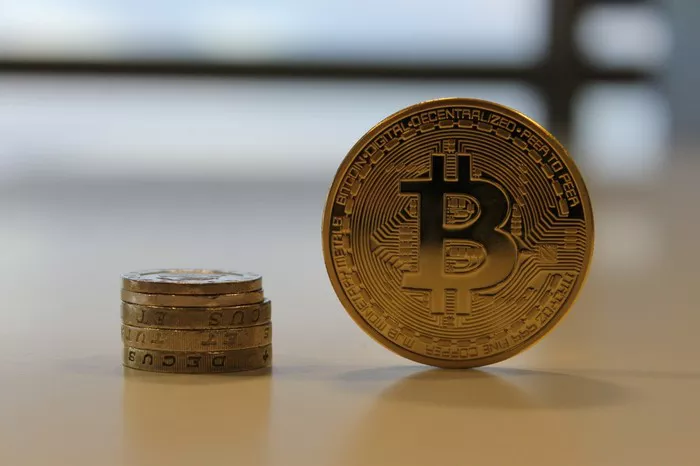When traveling to Japan or engaging in international transactions involving Japanese Yen (JPY), knowing where to exchange United States Dollars (USD) for Yen becomes a crucial consideration. The exchange process can vary depending on factors such as convenience, exchange rates, fees, and the amount of currency you need to convert. There are several options available, each with its own advantages and drawbacks. In this article, we’ll explore in detail the different places where you can exchange USD for Yen to help you make an informed decision based on your specific circumstances.
Importance of Choosing the Right Place for Currency Exchange
The choice of where to exchange your USD for Yen can significantly impact the amount of Yen you’ll receive. A favorable exchange rate means you’ll get more Yen for your Dollars, allowing you to have more spending power during your time in Japan. Additionally, considering fees associated with the exchange is essential as these can eat into the value of your money. Different locations may have different fee structures, and being aware of them can help you save money in the long run. Whether you’re a tourist looking to explore Japan’s beautiful sights, a businessperson conducting transactions in the country, or someone with other financial needs related to the Yen, finding the best place for currency exchange is key.
Banks
1. Domestic Banks in the US
Many banks in the United States offer currency exchange services for their customers. You can visit your local branch and request to exchange USD for Yen. However, it’s important to note that not all branches may have Yen readily available on hand. You might need to call ahead or check online to see if they can fulfill your request.
The exchange rates offered by domestic US banks are usually based on the current market rates but may also include a margin or fee added by the bank to make a profit on the exchange. This margin can vary from bank to bank. For example, some larger banks might have slightly better rates compared to smaller regional banks. Additionally, there could be a service fee charged for the currency exchange transaction. This fee can range from a fixed amount, like $5 or $10, to a percentage of the total amount being exchanged.
Another aspect to consider is that banks may require you to have an account with them to use their currency exchange services. If you’re not an account holder, they may still provide the service but could have additional restrictions or higher fees. Some banks also offer the option to order foreign currency in advance, which can be convenient if you know exactly when and how much Yen you’ll need.
2. Banks in Japan
Once you arrive in Japan, local banks are a common option for exchanging currency. Banks like the Bank of Tokyo-Mitsubishi UFJ, Mizuho Bank, and Sumitomo Mitsui Banking Corporation have branches throughout the country. These banks typically offer competitive exchange rates compared to some other places, especially when compared to airport exchange counters.
You’ll need to bring your passport and fill out some forms as part of the Know Your Customer (KYC) requirements. The process may take a bit of time, but it ensures the legality and security of the transaction. The fees charged by Japanese banks for currency exchange can vary. Some may charge a flat fee per transaction, while others may have a fee structure based on the amount of currency being exchanged. It’s advisable to ask about the fees upfront before proceeding with the exchange.
Also, keep in mind that bank operating hours in Japan are usually from Monday to Friday, with limited hours on Saturdays and often closed on Sundays and public holidays. So, you’ll need to plan your visit accordingly if you want to exchange currency at a bank.
Airport Exchange Counters
Airports in both the US and Japan usually have currency exchange counters. In the US, at major international airports like John F. Kennedy International Airport in New York or Los Angeles International Airport, you can find these counters where you can exchange USD for Yen before your trip.
The main advantage of airport exchange counters is convenience. They are located right at the airport, making it easy for you to get some Yen before boarding your flight to Japan. However, the exchange rates at these counters are often less favorable compared to other options. The operators at the airport exchanges need to cover their costs, including rent for the space at the busy airport, and make a profit, so they tend to add a higher margin to the exchange rate.
There may also be additional fees charged on top of the less favorable rate. For example, you might encounter a flat fee for the transaction or a fee based on the amount of currency being exchanged. Due to these drawbacks, it’s generally recommended to exchange only a small amount of money at the airport, just enough to cover immediate expenses like transportation from the airport to your accommodation in Japan. Then, you can look for better exchange options once you’re in the city.
Currency Exchange Offices
1. In the US
There are numerous specialized currency exchange offices in major cities across the US. These offices focus solely on currency exchange and may offer a wider range of currencies compared to some banks. For example, in cities like New York, San Francisco, or Chicago, you can find well-known exchange offices that deal with Japanese Yen.
The exchange rates at these offices can vary widely. Some may offer more competitive rates to attract customers, while others may have rates similar to or even worse than those at banks. It’s important to shop around and compare rates at different exchange offices. Fees are also a factor to consider. They may charge a flat fee, a percentage-based fee, or a combination of both. Additionally, these offices may have different requirements for identification and documentation compared to banks.
2. In Japan
In Japan, currency exchange offices can be found in popular tourist areas such as Tokyo’s Ginza district, Kyoto’s city center, or Osaka’s Namba area. These offices are convenient for tourists who want to exchange currency while out and about exploring the city.
Similar to their counterparts in the US, the exchange rates at Japanese currency exchange offices can differ. Some may offer better rates than airport exchanges but might not be as good as those at local banks. The fees charged can also vary. It’s a good idea to check reviews or ask around to find reputable exchange offices with reasonable rates and fees. One thing to watch out for is that some less reputable exchange offices may try to use confusing exchange rate displays or add hidden fees, so it’s important to be vigilant and understand exactly what you’re agreeing to before completing the exchange.
Hotels
Many hotels in Japan, especially larger international hotels and those in tourist areas, offer currency exchange services to their guests. This can be a convenient option, especially if you’ve just arrived and don’t want to immediately venture out to find a bank or exchange office.
However, the exchange rates at hotels are usually not as favorable as those at banks. Hotels often add a significant markup to the exchange rate to cover their administrative costs and make a profit from the service. Additionally, there may be limits on the amount of currency they can exchange for you. So, while it’s an option for a quick and easy exchange of a small amount of money, it’s not the best choice if you’re looking to exchange a large sum or get the best value for your USD.
ATMs
1. Using ATMs in the US
Some ATMs in the United States allow you to withdraw foreign currency, including Japanese Yen. These ATMs are usually located at major international airports or in large cities with high tourist traffic. The advantage of using an ATM for currency exchange is that you can access your own bank account and withdraw the exact amount of Yen you need.
However, there are several things to consider. First, your bank may charge a fee for the foreign currency withdrawal. This fee can be a fixed amount or a percentage of the transaction. Second, the exchange rate used by the ATM may not be the most competitive. It’s often based on the rate provided by the bank’s partner financial institutions. Also, make sure the ATM you’re using is affiliated with a reliable network to avoid any issues with the transaction or potential fraud.
2. Using ATMs in Japan
ATMs are widely available in Japan, and many of them accept international debit and credit cards. Banks like 7-Eleven ATMs, which are affiliated with Seven Bank, are known for being very accessible to foreigners. You can use your card to withdraw Japanese Yen directly.
The exchange rate used by these ATMs is usually based on the current market rate plus a small margin added by the bank. There may also be fees involved. Your home bank may charge a fee for using an overseas ATM, and the Japanese bank operating the ATM may also levy a fee. It’s advisable to check with your home bank before your trip to understand what fees you’ll incur. Withdrawing larger amounts at once can sometimes help reduce the impact of these fees on a per-unit basis.
Online Currency Exchange Platforms
In recent years, online currency exchange platforms have emerged as an alternative option. These platforms allow you to exchange USD for Yen from the comfort of your own home or office before your trip.
Some well-known online platforms offer competitive exchange rates and relatively low fees. They work by facilitating the transfer of funds between your bank account and their own accounts, and then arranging for the delivery of the currency to your address or for pickup at a designated location. However, there are risks associated with using these platforms. You need to ensure that the platform is legitimate, regulated, and has a good reputation for security. There have been cases of online currency exchange scams in the past, so it’s crucial to do your due diligence and research the platform thoroughly before using it.
Conclusion
When it comes to exchanging USD for Yen, there are multiple options available, each with its own set of pros and cons. Depending on your specific needs, such as convenience, getting the best exchange rate, and minimizing fees, you can choose the most suitable place for your currency exchange. For a small amount of immediate cash, airport exchanges or hotel services might suffice, but for larger amounts and better value, banks or reputable currency exchange offices in the city could be better choices. Online platforms offer a convenient alternative for those who plan ahead, but caution is required. By understanding the different options and their characteristics, you can make the most of your currency exchange and ensure that you have the right amount of Japanese Yen for your activities in Japan, whether it’s for travel, business, or other purposes.
Related topics:






























